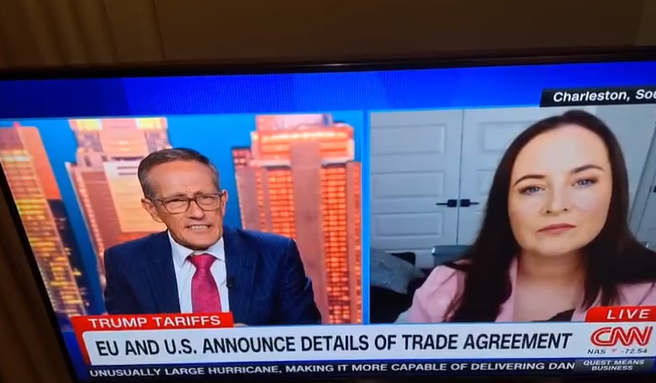
Botox continues to be manufactured at the Abbvie facility in Westport.
“A significant win for the EU” is how Taoiseach Micheál Martin described Thursday’s announcement of the 15% ceiling on tariffs for EU exports of pharmaceuticals to the United States of America.
There had been a concern that an ongoing Section 232 investigation by the US authorities into the sector might have led to an even higher tariff on the very important sector.
READ MORE: Trump tax moves led Westport firm to redomicile to US in 2020
However, the Taoiseach made clear the ceiling applies “in all circumstances, including when the current US Section 232 investigations are concluded.”
Mayo eyes will have been drawn to the line in the Joint Statement from the EU and US that “reflects acknowledgement by the European Union of the concerns of the United States and our joint determination to resolve our trade imbalances and unleash the full potential of our combined economic power.”
In the era of Trump and a big focus on trade balances, Ireland’s trade surplus in goods of €70 billion was always going to draw attention.
However, when services are included in the mix, Ireland actually has a trade deficit of €93 billion.
Pharmaceuticals play a big role in the trade surplus of goods, with the Botox produced at AbbVie’s Westport facility being a very well-known example of the manufacturing in this country.
The US is a major market for the pharmaceutical goods produced in Westport, with an estimated 70% of the turnover from the plant coming from across the Atlantic.
 Mayo Fine Gael TD Keira Keogh discussed the issue on CNN.
Mayo Fine Gael TD Keira Keogh discussed the issue on CNN.
Could have had a devastating impact
Speaking to an American audience on CNN, Fine Gael TD Keira Keogh outlined the stark reality if the tariffs had been higher.
“In the west of Ireland, we have Johnson and Johnson, we have Baxter, we have AbbVie. And so, if we had seen the likes of 30% and figures like that, it could have had a devastating impact.
“If you look at my hometown, we're a small town of 7,000 people. So if you take out 1,300 employees, that would just wipe out the town economically.
“We have always said, we would love to see zero for zero. But if we have to accept 15%, I think that's something that we can live with.”
Complexity can’t be underestimated
In the face of speculation about what the tariffs could mean for Irish jobs, Caroline Gaynor, the incoming chairperson of the Irish Venture Capital Association, offers a calming overview.
The experienced pharmaceutical industry insider says that “the complexity involved in moving a manufacturing site can't really be underestimated. It's not something that you can make a decision on quickly, and it can't make it as effective quickly.”
She points out that unless the US pharmaceutical companies already have a lot of capacity already existing in the US they could access, it's a big endeavor.”
“Having been privy to some of the work that would have to be done to make such change happen. It's complex. It's not something that can be done overnight.”
READ MORE: Horrible histories of Westport a big hit with locals and tourists alike
She acknowledges that the 15% tariff ‘is not good’ but says adds that “there's still an awful lot in flux and a lot of details that need to be ironed out.”
It's an additional cost that we didn't have before now. Companies will do what they always do when these things happen, and sit down and you understand where you can make up some of the slack and make it work. So that's the beginning of all these folks having to do that.”
Subscribe or register today to discover more from DonegalLive.ie
Buy the e-paper of the Donegal Democrat, Donegal People's Press, Donegal Post and Inish Times here for instant access to Donegal's premier news titles.
Keep up with the latest news from Donegal with our daily newsletter featuring the most important stories of the day delivered to your inbox every evening at 5pm.